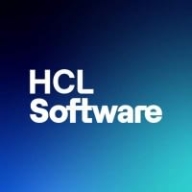

Pega Platform and HCL Domino compete in the enterprise IT solutions category, each with unique strengths. Pega Platform seems to have an upper hand due to its comprehensive automation and case management features, which are often considered more suitable for large-scale BPM needs.
Features: Pega Platform offers extensive features such as rapid prototyping, cloud deployment, and integration services. It excels in adaptability and ease of deployment with robust tools for enterprise-level solutions. HCL Domino is recognized for stability, strong data encryption, and versatility in installation across various OS. It's praised for secure communication and a dual role in messaging and workflow capabilities.
Room for Improvement: Pega Platform could enhance its user interface and licensing model, improve integration capabilities, and introduce more advanced AI features. Users also call for smoother upgrades and enhancement in its RPA and cloud footprint. HCL Domino requires a modernized user interface and better integration with third-party tools like Outlook, along with more user-friendly design improvements to stay competitive.
Ease of Deployment and Customer Service: Pega Platform offers flexibility with on-premises, cloud, and hybrid deployments, though scaling issues are noted. Technical support is reliable but complex queries may see delayed responses. HCL Domino focuses on on-premises deployment with praise for straightforward support, yet there's a need for more user-friendly deployment options and enhanced integrations.
Pricing and ROI: Pega Platform's licensing model is expensive and complex, suited for enterprise clients, but it offers high ROI due to automation efficiencies. HCL Domino provides more predictable pricing but is still seen as costly with limited ROI, impacted by higher AMC costs and strong competition from cost-effective alternatives.
I estimate that projects take days rather than weeks when using Pega Platform compared to traditional coding.
Pega Platform has positively impacted my organization, as they were using different technology before and have seen tremendous success and return on investment, so they are very happy.
The technical support from Pega is very low, rating a one or two out of ten.
I never needed support from the platform standpoint, but if additional features are required, we have regular meetings with the product team for feedback.
Pega's technical support team is very helpful.
Currently, big banking providers and insurance providers, even the members for healthcare payers, are using more than millions of operations on a daily or weekly basis.
In-line editing of documents and a document viewer are functionalities that would be beneficial.
There are always areas for improvement, which they are addressing in every part of the patch releases.
With the recent development of AI agents in Pega Platform 24.2, the adoption is not heavy due to regulations around using external LLM by customers, especially regulated customers in BFSS and healthcare.
Pega introduced Constellation, which allows a user to build a more engaging visual experience.
The Notes client is very expensive, costing around $105 per client.
Pega is priced higher than open-source options like Flowable but is suitable for large-scale industries like banking and insurance.
The pricing is expensive, and this is an issue.
From a licensing perspective, it is higher than the competition.
Its hybrid nature allows the use of both web-based applications and Notes client-based applications.
Pega Platform has positively impacted my organization by providing faster application development than traditional methods.
Pega Platform is excellent for enterprise-level solutions with integrations to entire systems, including case management, service orchestration, CRM, decision-making capabilities, digital process automation, and AI-driven functionalities.
Management capabilities such as dashboards.
| Product | Market Share (%) |
|---|---|
| Pega Platform | 6.1% |
| HCL Domino | 0.9% |
| Other | 93.0% |

| Company Size | Count |
|---|---|
| Small Business | 16 |
| Midsize Enterprise | 3 |
| Large Enterprise | 2 |
| Company Size | Count |
|---|---|
| Small Business | 11 |
| Midsize Enterprise | 15 |
| Large Enterprise | 69 |
HCL Domino (formerly IBM Domino) is a secure, enterprise-grade, application development platform. From IT to business, HCL Domino is the only low to pro-code application development platform that allows your business to build robust applications to solve workflow and process challenges fast. HCL Domino powers businesses around the world with 15,000 customers and 10 million apps built on our platform. HCL Domino has always been a secure, rock-solid, and proven solution.
Pega Platform provides flexible business process management with a focus on rapid application development and automation through a low-code approach, enhancing efficiency across sectors.
Pega Platform is renowned for its ability to streamline operations with robust automation features, including robotic process automation and decision-making capabilities. Its intuitive interface and workflow management contribute to a reputation for enhancing business processes. Although users face challenges with integration limitations and high licensing costs, they benefit from rapid deployment and efficient process adaptations. The unified architecture reduces complexity, while case management and integration services support digital transformations in sectors such as banking, insurance, and healthcare.
What are the key features of Pega Platform?
What benefits and ROI should users expect?
In industries like insurance, banking, healthcare, and government, Pega Platform is implemented to automate diverse workflows, supporting initiatives from claims processing to customer onboarding. Enterprises use Pega for case management and digital transformations, valuing its out-of-the-box integrations and real-time reporting capabilities to boost operational automation and enhance customer experiences.
We monitor all Rapid Application Development Software reviews to prevent fraudulent reviews and keep review quality high. We do not post reviews by company employees or direct competitors. We validate each review for authenticity via cross-reference with LinkedIn, and personal follow-up with the reviewer when necessary.